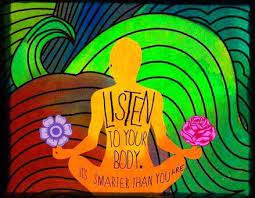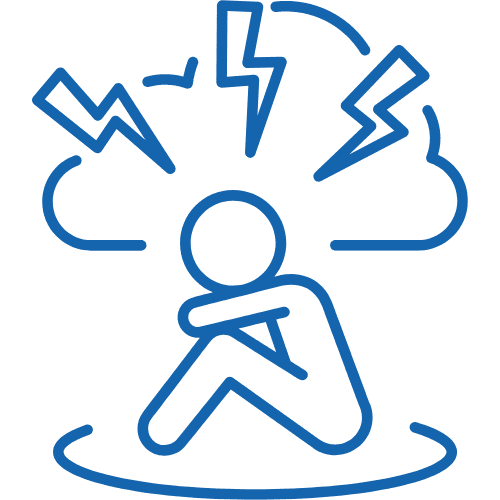Contents
- 1 Coping Skills for Stress and Anxiety
- 1.1 Coping Skill #1: Somatic Therapy
- 1.2 Coping Skill #2: Fresh Air
- 1.3 Coping Skill #3: Journaling and Reflecting
- 1.4 Coping Skill #4: Schedule Time for Breaks
- 1.5 Coping Skill #5: Focus on Nutritional Food and Drinks
- 1.6 Coping Skill #5: Spending Time with Those You Love
- 1.7 Coping Skill #6: Taking Care of Yourself to Reduce Stress and Anxiety
- 2 Conclusion
Coping Skills for Stress and Anxiety
Adults of all ages and stages of life will experience stressful times at some point. While a world without stress and anxiety would be a dream, it, unfortunately, is not a reality all the time. However, there are coping skills that exist to help you manage when you are dealing with a lot of stress and anxiety at once.
Figuring out options for coping skills before the stress hits is the best way to help manage anxiety and feelings of being overwhelmed. Having support systems in place such as therapists and strategies that you know help you as an individual can help you manage any stress and anxiety you may be experiencing now or in the future. Luckily there are a variety of options that can help, you simply have to figure out the strategies that work best for you. In this blog, we will read about five effective coping skills for stress and anxiety.
Coping Skill #1: Somatic Therapy

As demands in life seem to continue to increase and the world is moving at a rapid pace thanks to technology, stress seems to be increasing too. Thankfully, therapy exists to help you navigate all of the demands and responsibilities in your life that may feel overwhelming at times.
While cognitive behavior therapy tends to be the go-to method for many therapists, a new form of therapy has emerged recently that has proven to be extremely effective. Somatic therapy combines both techniques from cognitive behavior therapy as well as movement therapy to help patients use the mind and body connection to manage stress.
When working with a somatic therapist, you may use a variety of different techniques and strategies during your therapy session. Many somatic therapists have patients completing different movements and breathwork to release tension and trauma. Somatic therapy is a great tool to use when a patient is working through PTSD as well as needing support for anxiety and depression.
Coping Skill #2: Fresh Air
Have you ever noticed when you take a moment to step outside that your body immediately feels a little less tense? There is actually a scientific explanation for that and it has to do with stress hormones.
According to research completed by the U.S. Forest Service, being outside naturally reduces cortisol which is the hormone that regulates stress. So the next time you are feeling anxious and stressed out, take a few minutes and step outside. It may be the reset you need to feel capable to tackle the problems you are facing.
Fresh air can be one of the best things that you can do for your overall health. You will have a chance to get out into the sunshine and into nature for a bit, without having to feel stressed out by the TV, your computer, and all of the other things that you need to get done during the day. Try to spend half an hour or more outside to help yourself feel better.
Coping Skill #3: Journaling and Reflecting

Mental health professionals often suggest writing down your feelings and emotions to help manage stress. Similar to the idea that meditation helps clear your mind, journaling can do the same. Carrying around worries and anxieties in your brain without giving the thoughts space can cause tension and stress. Journaling gives you a safe environment to release those thoughts.
Journaling is also beneficial in that it can help with reflection and goal setting. Keeping your journals and looking back at them can help remind you of previous times when you were stressed but overcame the obstacles you were dealing with.
If you feel nervous about journaling and what other people may think about you when you participate in this task, just remember that no one else has to see the information that you write down. This is your own personal thinking and you never have to share it, so sit down and write down whatever is bothering you.
Coping Skill #4: Schedule Time for Breaks
With family and work demands, it can be easy to ignore your own individual needs. Scheduling time in your daily life for breaks is imperative to help cope with life’s daily stressors. Even if it can only happen once a week, blocking off an hour that is dedicated to just you is important to help give your brain and body a break.
While it may be tempting during your scheduled break to take a screen break, experts suggest putting the screens down as they can increase anxiety. Instead during your scheduled break, plan something relaxing.
Scheduling a massage or walk with a friend can give you something to look forward to during the week. Having something to look forward to helps increase your mood and provides balance to your hectic schedule. You deserve to have a little bit of the focus put on you during the day, so take some time to schedule a break and see how much better it can make you feel.
Coping Skill #5: Focus on Nutritional Food and Drinks
With the brain and body being so intricately connected, it is no surprise that your diet can play an important role in stress management. While it isn’t necessary to change your diet completely, even a few small changes can have a big impact to help you cope better with stress.
Although caffeine and alcohol can feel like they are increasing your mood at the time, when the effects wear off your brain is negatively impacted. You don’t have to give up your morning cup of coffee though or a night out with friends enjoying a beverage. Simply making sure that you only have moderate amounts of caffeine and alcohol can help regulate your nervous system which in turn helps you deal better with stress.
Eating a balanced diet is also important for stress relief. Making sure to get enough protein and fruits and vegetables in your diet helps keep your brain sharp and clear. While sugar is a delicious addition to any diet, too much can cause people to feel sluggish and lethargic. The key is to stay balanced and keep everything in moderation. Making small adjustments to have a healthier diet will help in the long run to give you the strength and energy you need to cope with stress as it arises.
Coping Skill #5: Spending Time with Those You Love
One of the final coping skills that you can consider using is to spend time with those you love. When we get caught up in all of our own tasks, it is easy to put socialization to the side and not take care of ourselves. But you need to carve out some time for yourself and some of your friends and family so you can feel better too.
Coping Skill #6: Taking Care of Yourself to Reduce Stress and Anxiety
While there are numerous coping strategies available to help with stress and anxiety, not every strategy will work for every individual. This is why it is important to have different tools in place to figure out what works best for you. Sometimes it takes some trial and error to find the coping skills that work best for you. There are various online stress counseling available you can also try them.
Once you figure out what works, making a list of coping skills can be a good resource to have when life starts to feel stressful or you feel that anxious feeling start. Being prepared to deal with stress in a healthy way can actually lower the stress once it happens and help you live a balanced and happy life.
Conclusion
When it comes to managing stress and anxiety, having the right coping skills is essential for finding positive outcomes. Coping skills can range from mindfulness and relaxation techniques to professional help and cognitive behavioral therapy. No matter what type of coping skill you choose, remember that you are in control of your own emotions and reactions. You have the power to break through the cycle of stress and anxiety and find a healthier way to manage your life. With dedication and practice, you can create an arsenal of coping skills that will help you feel more in control and better equipped to face future challenges.


